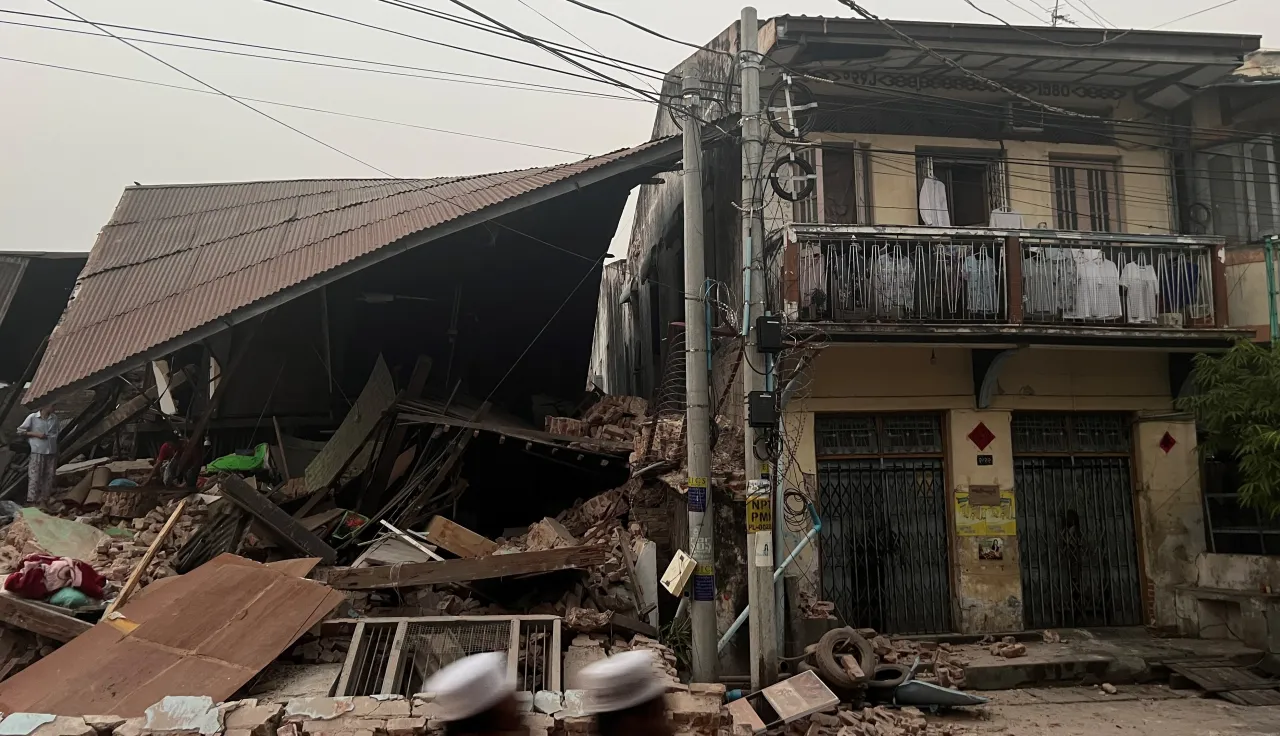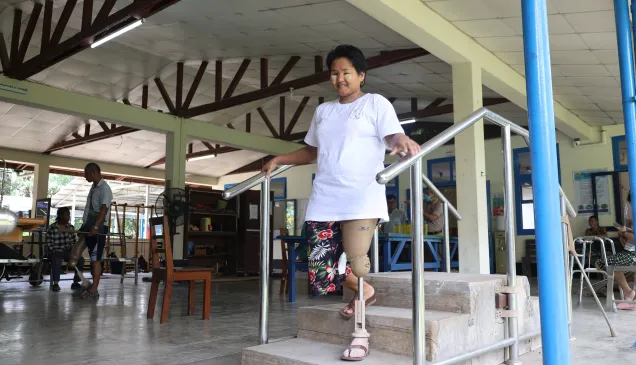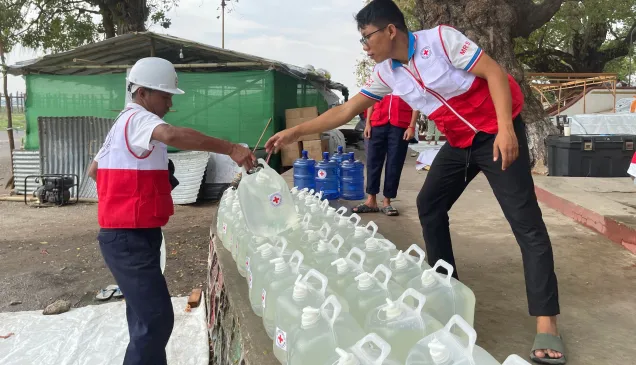“The devastating earthquake and the massive needs it generated must push the parties to agree on a path forward to bring critical respite to communities severely weakened by long years of conflict and violence,” said Regis Savioz, the ICRC's regional director for Asia and the Pacific. “The announced short cessation of hostilities is certainly a step in the right direction but will need to be extended.”
Before the earthquake, nearly 20 million people were already relying on humanitarian action as a result of conflicts and violence. Many are now in even more dire need of support. As the search and rescue phase winds down and hope of finding survivors under the rubble fades, the humanitarian response to meet the growing needs of all affected communities must be scaled up urgently.
In Mandalay and Sagaing, many remain unable to return safely to their homes, leaving them no choice other than to sleep in the open. Over 100 hospitals and health-care facilities were severely damaged and are no longer safe. Access to electricity is still not reliable, meaning water pumps and treatment plants are not functional. With daytime temperatures frequently exceeding 40° Celsius, this is a major concern. The shortage of safe drinking water and damage to sanitation systems also increases the risk of waterborne diseases and infections. Broken telecommunications infrastructure means that many families are still unable to contact their loved ones, and is hampering the humanitarian response.
“We are working side by side with the Myanmar Red Cross Society (MRCS) and other local responders to provide vital aid in the worst-hit areas of Mandalay and Sagaing,” said Arnaud de Baecque, the ICRC’s head of delegation in Yangon. “We are also working to support families in harder-to-reach areas in Shan State.”
The ICRC’s response, in partnership with the MRCS, our Red Cross and Red Crescent partners, the International Federation of the Red Cross and Red Crescent Societies (IFRC), and other local responders, prioritizes addressing basic needs in all affected areas – access to health care, shelter, food and clean water. In the past week, ICRC-provided assistance included medical supplies to treat up to 10,000 patients in hospitals in Mandalay, first aid kits to treat moderate injuries, fuel to pump water from boreholes, water filters and emergency shelter items.
ICRC in Myanmar
The ICRC has been active in Myanmar for more than 30 years, providing assistance to people affected by armed conflict and other violence in the states of Kachin, Kayin, Kayah, Rakhine and Shan and in the Mandalay region. Myanmar is the ICRC’s second largest operation in Asia.




